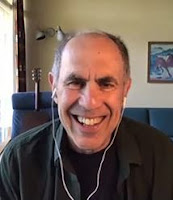A Random Thought on Mikey Kaus

I never thought, and still don't think, the loathing of Kaus was mostly due to the controversial positions he took on the dominant political news items in America in the 1990s and 2000s: welfare reform, criminal justice, immigration, the Iraq War, etc. Rather, I think he was loathed because he insisted--to the minds of the aforementioned liberal/left/progressive pundit class, infuriatingly so--that he was taking those positions as a sincere, if appropriately evolved, New Deal Democrat. In a way, I think Kaus occupies the same much-condemned rhetorical space as Ralph Nader: he's someone who is seen as a betrayer, someone who talks the talk of liberal justice and then engages in public actions and intervenes in public debates that seem, to most liberals and leftists and progressives, to entirely contrary to how the liberal political world actually works.
The first minutes of the conversation with Kaus touched upon the legacy of Charles Peters and the magazine he founded, Washington Monthly, which tutored legions of journalists (including Kaus) in a vision of activist government grounded, as Paul Glastris, Washington Monthly's long-time editor, put it, in "the communitarian patriotic liberalism of Peters’s New Deal youth." There are, out there amid the sprawling, multifaceted coalition that constitutes the Democratic Party, lines of reflection upon the achievements of the New Deal, both scholarly and activist, which seriously downplay the ethical and civic part of that triumph of positive liberalism and egalitarianism. According to those arguments, the greatest achievement of the New Deal was that it laid the foundation for erecting social democratic institutions in America, for which many are still fighting for: to make health care a human right, to make higher education available to all, to put workers in charge of the economy, etc. As a democratic socialist myself, I agree with those lines of argument! But I'm also a sometime left conservative, a wanna-be civic republican, and a fan of both Christopher Lasch and the Point Huron Statement, and thus find myself agreeing with Peters as well. The leadership of the post-New Deal, and particularly the post-civil rights movement, Democratic Party really did focus mostly on achieving liberal justice through building ever-more effective (and ever-larger) redistributive institutions and practices. The way that focus partly (but not entirely unintentionally) combined a very un-New Dealish individualism with outright bureaucratic statism, and allowed a entirely new kind of meritocracy to flourish in liberal circles, thus taking the focus off the cultural and communal aspects of what a genuinely egalitarian and just society must involve...well, that's the critical space which Kaus occupied. Entirely coherently? In a philosophically rigorous way? Open-mindedly, kindly, and without self-indulgent contrarian snark? Not at all; in many ways, Kaus's voice was a profoundly flawed vehicle for this critical perspective on post-Cold War liberalism in America. But to my mind, at least, he was a vehicle for it all the same.
My primary evidence for this is a wonderful book that he wrote, The End of Equality. The book never got the respect it deserved, I think, partly because of the weird moment it arrived (right at the beginning of the Clinton administration; but was the book arguing against what Clinton was doing, or supporting it, or both?), and partly because Kaus's subsequent career--intransigently defending some of the worst aspects of Clinton's welfare reform, obsessing about family breakdown even as income inequality skyrocketed, etc.--retrospectively made the book's insistence that "Money Liberalism" was a non-starter and that "Civic Liberalism" was the way to go seem like Kaus was auditioning George W. Bush's "compassionate conservatism" a decade before it nominally (though never actually) arrived. All those criticisms are fair. But I still use selections from the book in my Political Ideologies classes on occasion, because I find so much of it refreshingly clear and free of cant. He is frank about his conviction that most of those with socialist aspirations have been unwilling to recognize the incompatibility of "fraternity, community, and idealism" with the lack of "material prosperity" that only rapacious capitalism seems to provide (p. 11); he is genuinely eloquent in asserting that differing levels of health care don't actually matter to the egalitarian legitimacy of society so much as "that everyone wait in the same waiting rooms" (p. 93); and he is downright prescient in warning that, if the goal of the Democratic party continued to be tweaking the tax code in some Rawlsian way so as to make it fairer and increase the size of welfare checks but in the meantime said nothing about the lack of community-feeling and solidarity in America, the end result will a general hardening of whatever egalitarian spirit the revolutions of the 1930s and the 1960s may have left us with:
Americans may be social egalitarians today. But give the affluent two more decades to revile the underclass and avoid the cities as if they were a dangerous foreign country, two decades to isolate their "gifted" children from their supposed inferiors, two decades of "symbolic analysis" and assortative mating, and we might wake up to discover that Americans aren't such egalitarians at all any more. Then politics would be really dispiriting (p. 180).
That paragraph can be picked apart and even partly undermined in multiple ways (that large numbers of younger and mostly liberal-learning people, including young families, started returning to America's cities throughout the 2000s is the most obvious rejoinder, but not the only one). But I read it, and I see the once at least moderately liberal suburbs, filled with college-educated, white-collar-job-holding, mostly well-off Americans, voting for Trump across large parts of America. Dispiriting indeed.
Anyway, this is just something that occurred to me, when Robert unintentionally invited Kaus back into my mind. So I thank him for that.


No comments:
Post a Comment